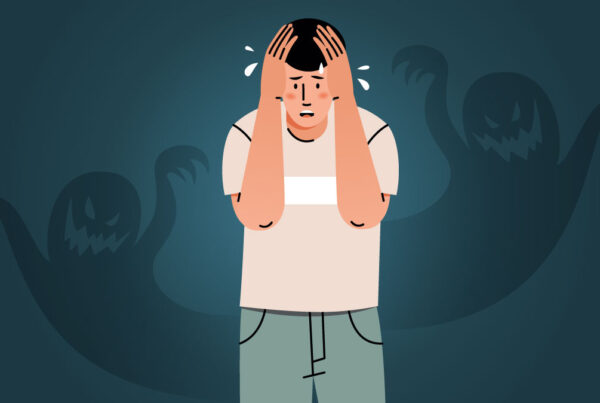Maintaining a positive mental attitude and mental well-being during cancer treatment is crucial for a patient’s overall health and recovery. A cancer diagnosis and its treatment can lead to emotional challenges, including anxiety, depression, and fear, but there are several ways a patient can foster mental resilience and stay mentally “high” or positive throughout the process. Here are some strategies that can help:
1. Psychological Support and Therapy
- Counseling or Therapy: Professional support from psychologists or counselors can be invaluable. Cognitive-behavioral therapy (CBT) or supportive counseling can help manage feelings of anxiety, depression, and fear, while providing a safe space for emotional expression.
- Support Groups: Cancer support groups (either in person or online) can offer comfort by connecting patients with others going through similar experiences. Sharing concerns and receiving emotional support from peers can boost morale and reduce isolation.
2. Mindfulness and Relaxation Techniques
- Mindfulness Meditation: Practicing mindfulness or meditation helps cancer patients focus on the present moment and reduce worry about the future. It can alleviate stress and promote calmness.
- Deep Breathing Exercises: Controlled breathing exercises help to relax the body and mind. This technique can reduce anxiety, manage stress, and promote a sense of well-being.
- Progressive Muscle Relaxation: This involves slowly tensing and then relaxing different muscle groups in the body, which can help relieve stress and improve mood.
3. Maintaining a Sense of Purpose
- Setting Goals: Small, achievable goals can give a cancer patient something to look forward to and help keep them focused. These goals might range from something as simple as taking a short walk each day to engaging in hobbies or pursuing a new skill.
- Engage in Hobbies: Staying connected with hobbies and interests, even in a modified way, can provide enjoyment and a sense of accomplishment, whether it’s reading, painting, gardening, or something else the patient loves.
- Volunteering: Some patients find fulfillment by helping others. Volunteering in a meaningful way, even if it’s through small actions, can contribute to a sense of purpose and connection.
4. Physical Activity
- Exercise: Light to moderate physical activity (as approved by a doctor) can significantly improve mood, boost energy levels, and promote overall well-being. Exercise releases endorphins, natural mood boosters that can help the patient feel better physically and emotionally.
- Gentle Movement: Activities like yoga, tai chi, or stretching exercises can enhance flexibility, reduce stress, and improve mental clarity while being gentle on the body during cancer treatment.
5. Healthy Diet and Nutrition
- Nutrition and Hydration: Eating a balanced, nutritious diet can improve both physical and mental well-being. A diet rich in fruits, vegetables, lean proteins, and whole grains provides essential vitamins and minerals that support brain function and overall energy levels.
- Supplements and Vitamins: In consultation with a healthcare provider, taking vitamins or supplements might help to support mood and overall health, especially if the cancer or treatment has led to deficiencies (e.g., vitamin D or B12).
- Stay Hydrated: Dehydration can affect mood and cognitive function, so drinking plenty of water is important for maintaining mental clarity and emotional balance.
6. Social Support
- Family and Friends: Staying connected with loved ones can provide an emotional boost and help a cancer patient feel supported and less isolated. Regular communication through phone calls, visits, or even online chats can foster a sense of connection and positivity.
- Spirituality or Faith: For some patients, connecting with their spiritual beliefs or participating in religious activities can provide comfort, strength, and a sense of hope. This could involve praying, attending services, or speaking with a spiritual advisor.
- Laughter and Humor: Laughter is an excellent tool for improving mood. Watching comedy, reading funny books, or sharing jokes with friends can help boost spirits and reduce stress.
7. Mental Health Medication (If Needed)
- Antidepressants or Anti-anxiety Medications: If a cancer patient is struggling with depression or severe anxiety, medications prescribed by a healthcare professional can help. These can improve mood, promote emotional stability, and enhance the patient’s ability to cope with the emotional toll of cancer.
- Consultation with a Psychiatrist: A psychiatrist may provide guidance on managing mental health symptoms during cancer treatment. This could include medication or other therapeutic strategies.
8. Positive Thinking and Gratitude
- Gratitude Practice: Keeping a gratitude journal or reflecting on positive aspects of life can help maintain an optimistic outlook. Even small things, such as the love of family or beautiful moments, can make a big difference in mental well-being.
- Focus on the Positive: Encourage the patient to focus on what they can do, rather than what they can’t. Cultivating an attitude of resilience and optimism, even in the face of illness, can help them maintain a positive mental state.
9. Relaxation and Stress Reduction
- Massage or Acupressure: Some patients find relaxation and pain relief through complementary therapies like massage or acupressure. These therapies can reduce physical tension and enhance mental relaxation.
- Aromatherapy: Certain scents (like lavender or chamomile) can have a calming effect and promote relaxation.
10. Educate and Empower
- Understanding the Illness: Learning about the cancer diagnosis and treatment options can help reduce fear and uncertainty. Being informed allows patients to feel more in control of their situation and helps them make decisions that align with their personal values and goals.
- Empowerment through Involvement: Allowing the patient to be actively involved in their care plan and decisions can help them feel empowered and less helpless. This involvement can foster a sense of control over their health and recovery process.
11. Engage in Creative Expression
- Art Therapy: Creating art, whether through painting, drawing, or crafting, can serve as an emotional outlet for patients. This allows them to express feelings they may not be able to verbalize and provides a creative escape.
- Music Therapy: Listening to or playing music can help elevate mood, promote relaxation, and offer emotional release. Many cancer centers offer music therapy programs that patients may find uplifting.
12. Resilience Training and Acceptance
- Building Resilience: Resilience training and learning coping strategies can help patients handle stress, setbacks, and the uncertainty that comes with cancer. This may involve working with a counselor or therapist to build mental strength and adaptability.
- Acceptance and Living in the Moment: Learning to accept the illness and live fully in the present moment, without constantly worrying about the future, can greatly reduce mental stress and increase emotional well-being.
Conclusion
Mental health during cancer treatment is as important as physical health, and cancer patients can benefit greatly from strategies that promote positivity, emotional well-being, and mental resilience. Fostering a supportive environment, practicing relaxation techniques, maintaining social connections, and focusing on gratitude can help cancer patients stay mentally strong during their journey. It is also essential to seek professional help if depression, anxiety, or other mental health concerns arise.



